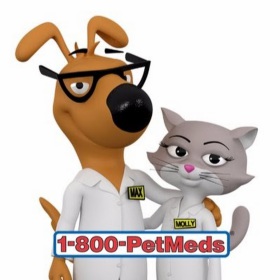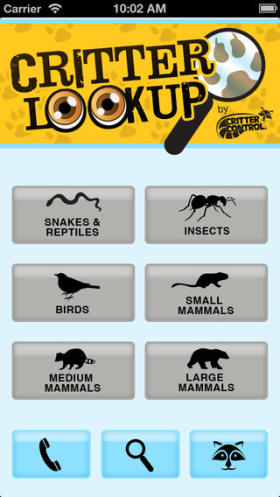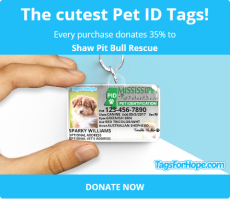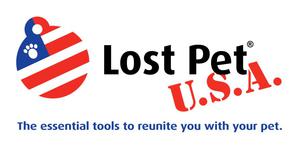Common Illnesses
Your dog may not display any signs of illness until quite ill. Therefore, it’s up to you to observe your dog closely each day.
Diarrhea
Diarrhea can be caused by several factors, including stress, change of diet, poor diet, eating garbage, parasites and viruses. If your dog has diarrhea and has no other symptoms, rule out change of diet by feeding your dog 2 cups of cooked rice mixed with one cup of cottage cheese for a day or two, and then reintroduce dry kibble.
Provide plenty of fresh water since diarrhea can cause dehydration. To check for dehydration, pull the skin up over the shoulder blades. If it snaps back quickly, the dog is not dehydrated. If the skin goes down slowly, then the dog is dehydrated and needs fluids. Dehydration can kill a puppy, so call a vet if you suspect your dog is dehydrated.
Fleas
All dogs have been treated while at Shaw PBR. However, additional flea treatments may be needed.
Flea treatments contain insecticides that can cause nerve and liver damage, impair the immune system and even cause cancer. Regular flea combing is the best way to control and monitor the fleas. Vacuum all areas of your house that your dog uses at least every 2-3 days.
Fleas usually are found on dogs that are ill and so, as with any illness, you’ll want to strengthen the overall health of the dog. As a rule, healthy dogs are less likely to get fleas than sick ones. Good food, minimal stress, proper hygiene and TLC will most likely keep the dog from getting fleas or an illness.
To check for fleas, inspect your dog daily - inspecting the rear groin, belly, and tail, under the chin and head, and neck (common places for fleas). Look also for black specks of flea dirt, which is actually digested blood. Before you begin combing, get a bowl of tap water and put a few drops of dish soap in it. You can put any fleas you find in the water and they will drown. If you don’t use soap, the fleas may swim to a fluff of fur and jump out of the water. If fleas are present, treat as soon as possible. Change bedding and vacuum the floors daily. The washing machine will remove fleas, eggs and dirt.
If your dog had fleas, watch his stools for short pieces of white rice that are tapeworms, which come from ingesting fleas. Tapeworms can cause diarrhea. All dogs adopted from Shaw PBR have been treated for tapeworms.
Kennel cough
Rescues and shelters are much like a child day care - as soon as one dog has a cold; most all the dogs in the facility get a cold. Just like people who have colds, kennel cough develops when the dog is stressed or when the immune system is compromised. Kennel cough usually goes away as soon as the dog has a warm, quiet and soothing place to sleep, and where they can drink lots of water, eat healthy food and receive lots of TLC!
Kennel cough is typically a dry, hacking cough. There may be some discharge from the nose and a clear liquid that is coughed up. It’s generally a mild, self-limiting illness of the trachea and bronchi encountered in all age groups of dogs, but especially in those under unusual stress, crowding or close confinement.
Because kennel cough is contagious, infected dogs should NOT be around other dogs until they’re over their cough.
Kennel cough treatment
Treatment for kennel cough involves bed rest and doggie videos! Make sure your dog has plenty of fresh water and healthy food. If your dog is not eating, try cooking up something special and smelly such as eggs, chicken or steak. Take short, leashed walks.
If your dog’s energy is good and the cough seems mild, try some Vitamin C (5-10 mg/lb, 2-3 times a day with food), and Vitamin E (3-5 mg/lb, once a day). If you don’t see improvement of the cough or cold after 3 days, OR if the condition worsens, call your vet. Dogs rarely develop a fever and lethargy with kennel cough. In fact, it can be difficult to keep them quiet. Strenuous activity can bring on coughing episodes, so limit activity and encourage rest. Even baths can be stressful to the system and should be avoided. However bringing your dog into the bathroom while you’re taking a shower can be helpful as the steam can help loosen mucus. Incubation of kennel cough is 5-10 days; its course is 10-20 days, with symptoms generally more marked the first week. Fever, lack of appetite and a yellow-green-brown nasal discharge can indicate secondary infections. Call your vet if any of these symptoms occur.













